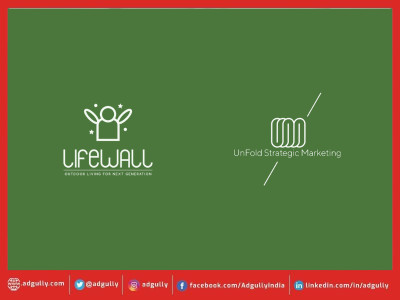Business 101 From India’s Visionary Entrepreneurs On Masters Of Business
When setting up a new business, one needs guidance for even some of the most fundamental questions like: How much should you invest? What’s the right way to target a particular consumer? How do you predict market changes? All these and more can be answered on Audible Suno’s Masters of Business. The audio series provides a free business masterclass with India’s most successful entrepreneurs and leaders, including Kiran Mazumdar Shaw, Ronnie Screwvala, Lulu Raghavan, Nithin Kamath, Sandeep Murthy, Adhil Shetty, Harsh Mariwala, Riyaaz Amlani and more.
Here a sneak peek into 5 pro tips straight from India’s leading business tycoons:
Harsh Mariwala, Chairman, Marico Limited: “When you have limited budgets and high aspirations, innovations flourish”
Harsh Mariwala was the first of his generation to start working in his family business, Marico, at the age of 20. Looking back, he says he was left alone to do whatever he wished to, and that’s where he found his love of consumer goods and products. His advice to entrepreneurs is, “Get a hold of your key well-wishers, close family members and friends, set them up in a room for a few hours and ask them ‘What are my gifts, what are my areas of improvement?’. When you hear it from eight or 10 different angles, you will hopefully see a common thread, which will show you what you are passionate about and these are some of the gifts you possess. Logically, for most of us, when it comes to strengths and weaknesses, we tend to look at ways to improve our weaknesses. My view is that if you put efforts into both your strengths and weaknesses, your chances of success will be much higher. I have a 75-25 rule -- 75% should go into improving your strengths and 25% should go into nullifying your weaknesses.”
Ronnie Screwvala, Co-Founder and CEO, upGrad, Swades Foundation, UTV and RSVP Movies: “Allocate 30-40% (of your budget) for what you consider to be the differentiating factor”
Kickstarting his career with a cable service, Ronnie Screwvala went on to launch UTV, India’s leading television brand, which was followed up by RSVP, a dynamic, new-age production house. He has also dabbled with education through the launch of UpGrad. On creating a successful business and allocating funds, Ronnie says “Success and business comes when you look at things concurrently. While creating a product or business, the treasure trove between launching a successful and failed product is when someone comes to you with 10 questions you hadn’t thought of before. The milestones for the financial resources you need at every stage are different. At the time where you’re developing a prototype and have allotted a certain amount for it, you might also have to think of how much you need to spend for marketing. Not marketing to launch, but marketing to research. So have a subhead for launch, have a subhead for research. Obviously people overspend on technology and product, and it’s an important one, but it’s not the be all and end all, otherwise it will become very unidimensional. So please allocate 30-40% for what you consider to be the differentiating factor.”
Kiran Mazumdar Shaw, CMD, Biocon Limited: “You must be very annoyed and possessed about the problem and you must want to make a difference to overcome that problem. That’s what allows you to be a game-changer.”
Kiran Mazumdar Shaw, founder and CEO at Biocon, India’s leading Biopharmaceutials company and part of Time’s 100 Most Influential People, is a thought leader in the global biotechnology industry. On how to be a game-changer, Ms. Mazumdar-Shaw states: “Pioneers are usually game-changers and I personally believe that since I pioneered the biotechnology space in India, I know what changing the game means. It is about challenging the status quo, looking at the way things are done and disrupting the way it’s done and I believe that game-changers keep looking for differentiation and look at how to do something differently. So when you think about changing the rules of a game, you are constantly looking at a business model or a product or a consumer sentiment, and looking to see whether you can change it. How do you change the product and why do you want to change it? How do you change the way the consumer experiences that product? And ultimately, it’s about saying ‘Is there a new business opportunity that can disrupt’ and it’s about looking for those new business opportunities. Inspiration comes from anywhere and everywhere. You must be very bothered about a problem and want to transform something.”
Sunil Lulla, CEO, BARC: “Teams actually become the soul of success of any organisation or startup.”
As former CEO of Times Television Network, Grey Worldwide , COO of Balaji Telefilms, and now CEO, BARC Sunil Lulla has been instrumental in bringing teams together for successful businesses. On crafting the perfect team, he says, “There is a belief that a single founder business doesn’t need a team. But a team is a navigation light, it brings together multiple skills, resources and plurality of views. It helps to build and scale the idea. The earlier on you can build a team, the stronger the chances of success. Trying to build an organisation without a team has a low rate of success. One of the most interesting things to know is what value system you want the team to possess. Often people talk about the right team. Building the right team is to, first of all, recognise that you don’t have all the skills, then it should respectfully recognise that those skills exist in other people and then giving them the equality to work those skills to their best potential. When you build a cross-section of people, you must have the same core value, have mutual respect and must understand the value of interdependence. You need a team that can eat, sleep and breathe a vision.”
Deep Kalra, CEO, MakeMyTrip.com: “Entrepreneurs need a lot of optimism. It’s important that when you start a business, you are focused on what you are setting out to achieve”
Deep Kalra is founder and CEO of MakeMyTrip.com talks about how to deal with setbacks with business ventures: “I think for all entrepreneurs, you should have a set of key metrics where you measure your success. This is not for the external world, this is what you would define as success after a month, quarter or year. Those benchmarks are so important, even if it’s something as non-financial as when you want to launch or open something. The most undervalued quality for an entrepreneur is resilience. Things will go wrong -- when they do, many people will pack up, but you won’t ever arrive at a winning solution quickly. The one advice I always give is to give things time, give it four to five years. It’s unrealistic to expect that you will start seeing a good business plan germinating in one or two years. Even if it doesn’t work out after four or five years, at least you will have the satisfaction of knowing that you tried your best. Work with unofficial advisors, work with people who want the best for you, your company and product.”
















Share
Facebook
YouTube
Tweet
Twitter
LinkedIn